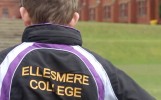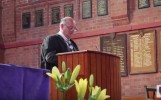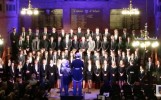




 Ellesmere College Student Views - Alice Yang (China)
Ellesmere College Student Views - Alice Yang (China)

 Ellesmere College Student View - Lewis Hall
Ellesmere College Student View - Lewis Hall

 Ellesmere College Football Academy
Ellesmere College Football Academy

 Ellesmere College Rugby Academy
Ellesmere College Rugby Academy

 Explore the Ellesmere Difference UK
Explore the Ellesmere Difference UK

 Ellesmere College - Aerial View
Ellesmere College - Aerial View

 Edoardo and Tommaso
Edoardo and Tommaso

 Tapaswini & Vanessa
Tapaswini & Vanessa

 Student Views - Vansh Bajaj
Student Views - Vansh Bajaj

 Speech Day 2015
Speech Day 2015

 Student Views - Richard Lay
Student Views - Richard Lay

 Student Views - Cassie Champrasit
Student Views - Cassie Champrasit

 Chapel Choir
Chapel Choir

 Return To The Forbidden Planet Trailer
Return To The Forbidden Planet Trailer

 Talbot House 'I'm A Believer'
Talbot House 'I'm A Believer'

 Students View - Tilly Walker
Students View - Tilly Walker

 Students View - Peter Von Hoven
Students View - Peter Von Hoven

 Students View - Ben Williams
Students View - Ben Williams

 Student Views - Alice Tow
Student Views - Alice Tow

 Ellesmere College Presents Romeo & Juliet
Ellesmere College Presents Romeo & Juliet

 Lower School
Lower School
GCSE Media Studies
GCSE Media Studies gives students the chance to develop a critical understanding of the role of the media in daily life. It encourages an understanding of how to use key media concepts to analyse media products, as well as the opportunity for hands-on practical work.
60% of the final grade is based on three Controlled Assessments of increasing difficulty around which the two year course is based. These are extended projects that test the students' ability to research, analyse, create and evaluate media products. The final 40% is based on a terminal examination on a topic that changes every year.
Students beginning the course in September 2014 will study the following topics:
GCSE Media Studies is a popular and successful course at Ellesmere because it
GCE (AS and A2) Media Studies
WJEC Media Studies specification is designed to allow media students to draw on their existing experience of the media and to develop their abilities to respond critically. It enables students to explore a wide variety of media, including digital media technologies, drawing on the fundamental concepts informing the study of the media: texts, industry and audiences.
The specification also encourages creative work to enable students to gain a greater appreciation of the media through their own production work and to develop their own production skills. At A2 in particular, students are given the opportunity to research a topic independently, which will then form the basis for their production, thus encouraging them to create productions informed by an awareness of contemporary media issues.
At AS students undertake the study of the Film Noir genre through classroom teaching, independent research and producing pre-production work such as promotional posters, DVD covers, screenplays and storyboards. They then work in small groups to plan, film and edit a film trailer in this genre, simulating industrial practice in terms of planning, location shooting, risk assessments, creative development and final editing.
In parallel to this, the course engages with the analysis of a range of media texts from newspapers and magazines to websites and advertising, as well as engaging with issues and debates about the media and theoretical approaches to representation and audiences. The MS1 examination is a demanding one, as students must analyse previously unseen texts as well as use case studies to answer a series of questions in depth.
At A2 the coursework is done entirely independently as students research an area of media of their choice, write an extended discursive essay and then plan and create a media product to reflect their theoretical findings. This is followed by a detailed evaluation of their production work. Recent investigation topics have included the representation of men in advertising for cleaning products, the narrative techniques of Neil Gaiman, and the impact of western music videos on Thai music culture.
The final exam is based around the study of three media industries in relation to a range of theoretical concepts and contemporary media practice: film, television and advertising.
Every year our students achieve excellent results and many go on to study Media related courses at university: Film Production, Journalism, Advertising and Marketing, Creative Writing, Popular Music and International Communications, for example.
Examination Boards